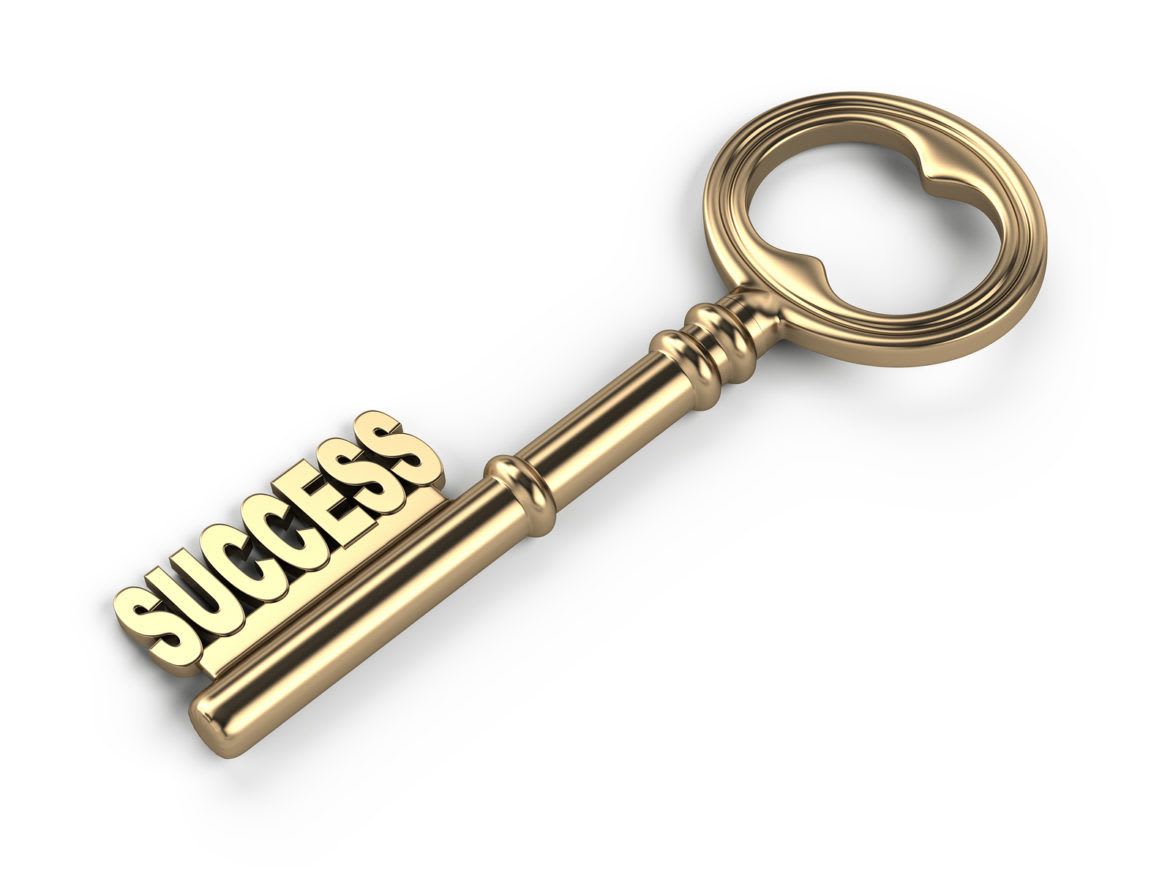
12 Keys to Increasing Productivity and Achieving Success in 2020: Part 1 of 2
I've been giving a lot of thought lately to the secret to success with daily productivity, and I'm building a framework that anyone can use to be more successful. No, I'm not selling anything. This is a collection of concepts I'm using to better myself personally, which you can use as well, to help drive your results forward.
Hindsight is 2020, and 2020 is the year to learn from our mistakes!
Take this opportunity to tune your behaviors and model what generates success.
Here are the 12 things I've been doing lately that you can do too with just a little bit of daily effort. By doing these 12 things, you're removing barriers to achieving your ultimate dreams and reaching levels of success you never thought possible before!
Since this is a lot of content to share, I'm going to do this in 2 separate posts. This post will cover the first 6 keys to increasing your personal productivity in 2020. When you're ready for the next 6 keys, check out the second half of My Secrets to Productivity and Success in 2020.

Key #1: Write and rehearse affirmations daily
I've written before on the 10 daily affirmations I use each day to keep myself focused and motivated. This should be the first thing you do when you wake up, because that's when your brain is in Theta State and can be easily programmed. Right now, write down a few affirmations that you can use each day to guide yourself in the right direction. Each day, rehearse and expand upon those affirmations, adding things like the all-important Why: why am I doing this and what will it mean for me in the future? These daily affirmations will keep you grounded and train your brain to recognize opportunities every day that can help you going in the right direction!
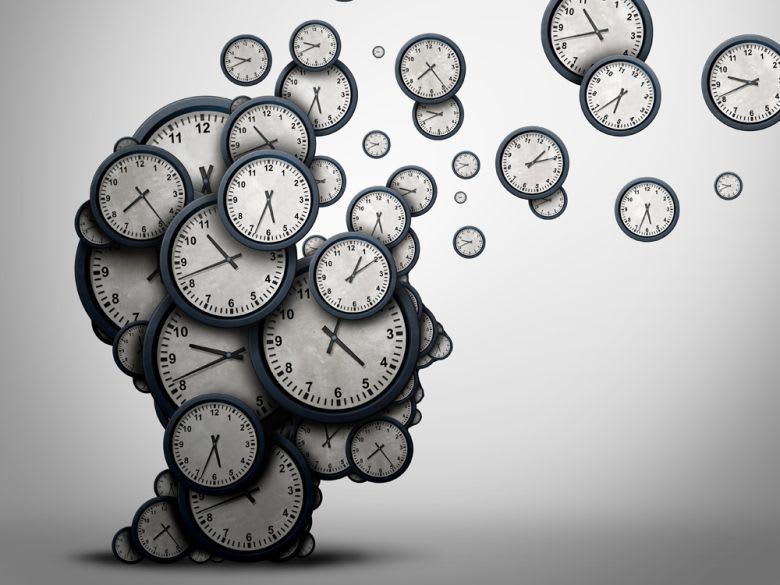
Key #2: Diligently log how you spend your time
If you aren't logging your time, how can you possibly budget it properly? This is a keystone habit I've taken from brilliant minds like Benjamin Franklin, Seneca the Younger, Tim Ferriss, Peter Drucker and other luminaries that are just plain smarter than I am. Many productive, successful people are smart at budgeting their money... and yet, they still don't track their time, and time is the most valuable and irreplaceable resource in the universe!
To get the most value out of this coming year, make sure you are logging and categorizing how and where you spend your time. I have been doing this very diligently since November 1st of 2019, and I can tell you, this has been the number one most important thing I've done to increase my personal productivity! So much so, in fact, that I'm building a productivity app around this concept... more to come on that subject soon.
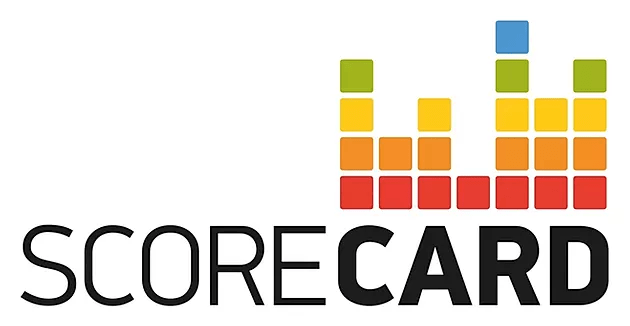
Key #3: Keep a daily score card for your habits
Did you spend time meditating today? Did you reach your goal of 10,000 steps? Did you avoid drinking more than 32 ounces of soda, while making sure to drink at least 64 ounces of water? These are just a handful of things that are on my daily scorecard. (I'll blog about this one more soon too!)
To make this objective easier, consider using an app like Loop Habit Tracker, which is free, open-source, and available for iOS or Android. Pretty soon I'll have another app of my own design to show you (VieDay) which will combine this concept with several others to give you a wide array of options for personal improvement!
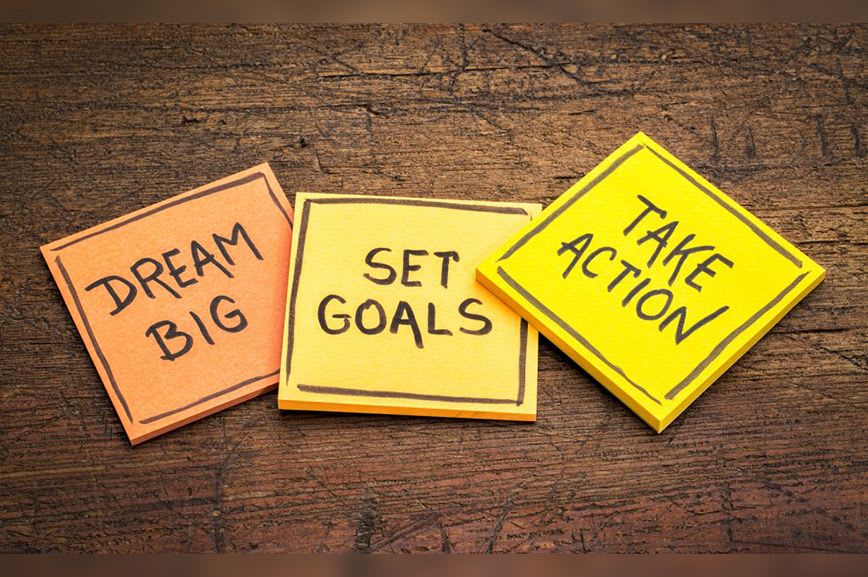
Key #4: Set goals for each day, week, and month
How do you know when you're doing better than ever before? Do you have S.M.A.R.T. goals? This acronym means that each of your goals are:
- Specific: Put enough information in your goal so you know how to tackle it.
- Measurable: Make sure that there's some kind of milestone or yardstick you can use to measure when you've attained your goal.
- Actionable: Your goal should be something you can start working on right away. For instance, "Become President of the United States" isn't something you can easily action. A better goal would be, "Get involved in local politics by volunteering some time each month."
- Relevant: Is this goal really important for your life's progression towards success, and does it need to happen right now?
- Time-boxed: Make sure your goals are something that can be accomplished in a finite amount of time. Rather than saying, "I'm going to become the world's best painter," you might try setting the goal of, "I'll paint something new every month, while following a different instructional video each time."
My own personal goals include things like spending at least 30 minutes a day on average on my personal fitness each week, getting my body fat percentage below 20% by July first of 2020, and generating at least $10,000 in totally passive income in 2020.
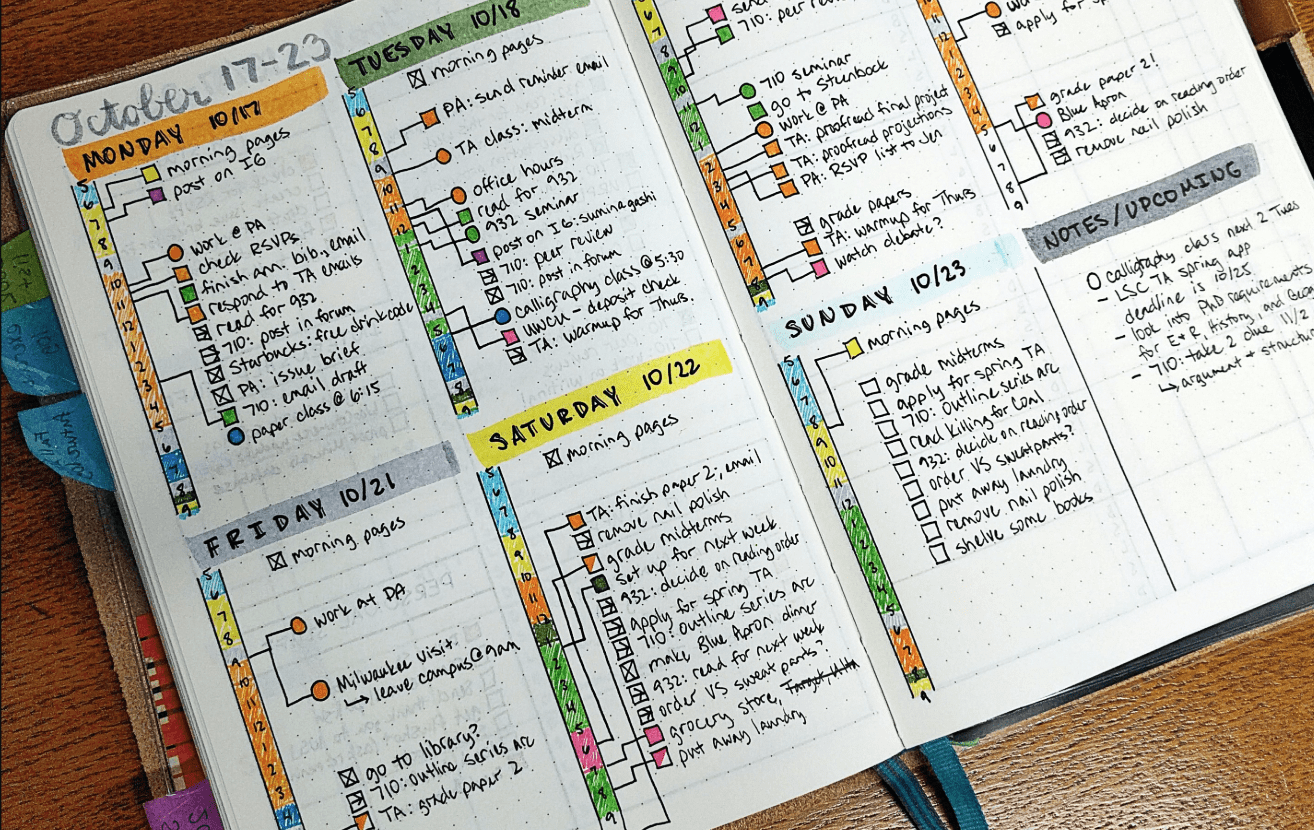
Key #5: Journal at the start and end of each day
The only way you can really track all of your objectives, and visualize your progress over time, is if you are regularly taking time to write down your goals, your thoughts, and your results. Without this crucial element, it's impossible to keep a unified vision and make small, iterative improvements to your lifestyle.
Every day, I start my day by asking myself 9 questions. I'm not going to give you the whole list right now – those will come in a later post – but here are some examples of those questions:
- What am I most excited about today?
- What obstacles need to get cleared today?
- What interesting content can I create today?
Similarly, I end my day by answering 9 questions. Here are some examples of the questions I ask myself each night:
- What am I most grateful for today?
- What's something new I learned today?
- What's most important to focus on tomorrow?
I simply cannot express enough how valuable it is to write down what you are most appreciative of each day. Especially if you have suffered from anxiety, depression, bipolar disorder, etc... just writing down what you're thankful for, each and every day, has immense mood-improving powers. Write this down!

Key #6: Creating and following a daily routine
Let me just say this: you can get results without following a routine, but even if you don't think you're following a routine, you probably are! For instance: do you usually watch a TV show (or several shows) on Netflix every night? Do you eat any of your meals at the same time? These things that you continue to do every day will ultimately become who you are, as a person!
Instead of following your routines mindlessly, consider actually authoring the routine you want. Don't fall into the trap of trying to plan out every single minute of your day! I find that the best results when planning out a daily routine come from deciding what you want to happen, roughly, in the morning, during the day, and at night.
For instance, in the morning, the very first thing I do is rehearse my daily affirmations. That sets the pace for my whole day and keeps me energized! Before I start my work day, I want to make sure that I've set aside time to meditate, to exercise, and to get organized. I also set aside a little time to ask myself the aforementioned daily questions so I know what the focus of my day will be.
Throughout the day, in addition to my regular work responsibilities, I try to find some time for authoring new content like this blog post, for piano practice, and for self-education each day.
Then, every evening, I make sure that I review my daily checklist to score myself on how I did with my habits that day. I answer my 9 evening questions and do a little journaling to evaluate my efforts and introspect. Last but certainly not least, I fill out a spreadsheet with the time I've logged from how I invested my efforts during the day, so I know – with great clarity and accuracy – where my time goes each day.
Note that I didn't say, "at 6am every day, I'm going to exercise". Those kinds of schedules almost never work for most of the people I've ever talked with! It takes an obsessive, almost sociopathic mentality to schedule every second of your day down to the minute, and I would never wish that upon anyone. Instead, simply have a list of things you'd like to do in the morning, afternoon, and evening. Try that and let me know how it works for you!

Wrapping up part one of this two part series...
Are you still with me so far? I hope so! This is just the first half of my 12 keys to personal productivity and success. Unlike some authors, I'm not just writing this stuff without actually living this process every day! These keys are literally my exact blueprint, which I've been following religiously over the last few months, to radically transform my life into something with far greater output.
If you've been enjoying this post so far, please let me know! Reach out to me on Twitter, Facebook or Instagram, and tell me what you think. Give me some more ideas for the behaviors that are working really well for you. I'll be adding a comments section to my blog soon so that you can also communicate right here about your results.
Next up, be sure to read Part 2 of my 12 Keys to Productivity, Personal Achievement and Success!
Thanks for coming along with me on this journey.
Ready to learn more about JavaScript development, organization and productivity tips?
Click here to read more articles on JavaScript, philosophy and life hacks!
